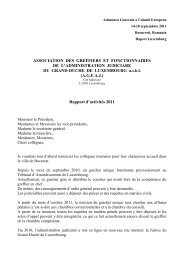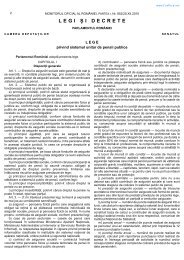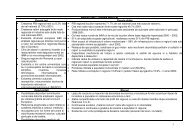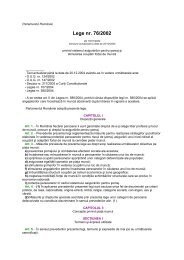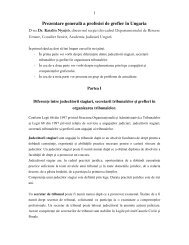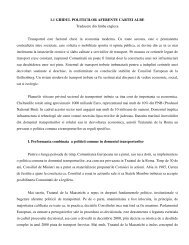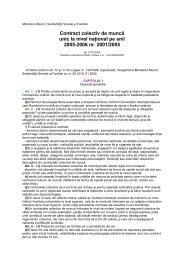Dipl.-Rpfl. Thomas K a p p l, - CSN Meridian
Dipl.-Rpfl. Thomas K a p p l, - CSN Meridian
Dipl.-Rpfl. Thomas K a p p l, - CSN Meridian
Create successful ePaper yourself
Turn your PDF publications into a flip-book with our unique Google optimized e-Paper software.
14<br />
VII. The relationship between the Rechtspfleger and judges (highest career)<br />
The judge can be an institution of jurisdiction or an official. As the institution of jurisdiction<br />
he is independent in his decisions and only bound by law, which is laid down in the<br />
German Law of Judges. We can find the same regulation for the Rechtspfleger in the Law<br />
of Rechtspfleger. For that reason the Rechtspfleger is also an independent institution of<br />
jurisdiction like the judge. The judge is not the superior of the Rechtspfleger. The<br />
Rechtspfleger is "the second column of the third power (the judicial power)" beside the<br />
judge. The Rechtspfleger is the jurist of voluntary jurisdiction and the judge is jurist of civil<br />
and criminal jurisdiction.<br />
On the other hand judges can also be officials at the administrative department of the<br />
courts. In this case they are bound by instructions of the superiors, for instance by the<br />
presidents of the courts. Judges are officials of the highest career.<br />
VIII. The relationship between the Rechtspfleger and court secretaries (registrars =<br />
middle career)<br />
The Rechtspfleger belongs to the higher career. He is the supervisor of the court<br />
secretaries (registrars = middle career) who are competent in keeping files and registers<br />
and making records of the civil and criminal proceedings.<br />
IX. Further education of Rechtspflegers (In-service Training)<br />
After passing the examination students have achieved the qualification to become<br />
Rechtspfleger and to perform all tasks of jurisdiction which are laid down by the Law of<br />
Rechtspfleger.<br />
Because of many amendments of the law in-service training has become necessary for<br />
judges and Rechtspflegers. It is their duty to attend in-service trainings, which are offered<br />
by the Ministries of Justice of the Federal States and of the Federal Ministry of Justice.<br />
The participation in in-service trainings however is generally voluntary but can be ordered<br />
by the superior.<br />
There are many institutions which offer in-service training, for instance the academies of<br />
the Federal States and the Federal Academy in Bonn.





